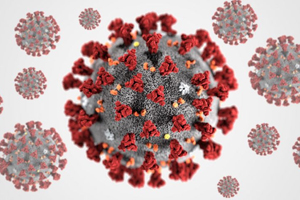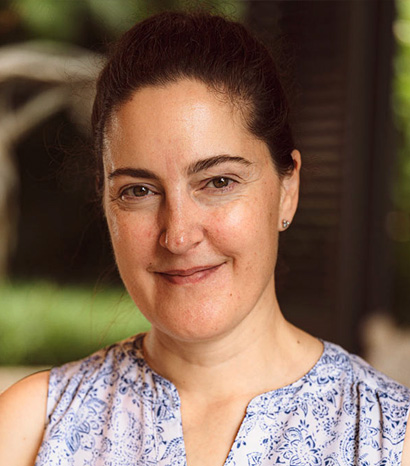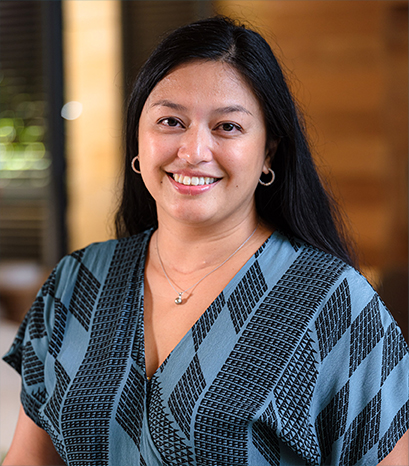
Dr. Cedric Strong, MD MBA
INTERNAL MEDICINE
Dr. Strong was always inspired by his father, a doctor who also sought to help and serve his community.
After completing his residency at Tufts University in Massachusetts, Dr. Strong worked at hospitals in Florida and New Hampshire before moving to Hawai’i in 2007. (He still wonders how he made it through all those harsh New England winters.)
Dr. Strong experienced the unique pressures of Hawaiian healthcare right away. He traveled between the islands for several years treating patients before putting down roots in Honolulu. Dr. Strong loves his work in Hawaii, and is inspired everyday by the place and people to make a positive difference both in his own life and in the community.
Coronavirus disease (COVID-19)
A new coronavirus disease causes respiratory symptoms. We know this as COVID-19. It was first identified in December 2019 in Wuhan city, Hubei Province, China. It has since spread across the world.

Our content will change as more information about the new virus becomes available.
As a result of COVID-19 and the current demands, we are now offering COVID-19 risk assessment. Additionally, we offer healthcare clearance too. Please note, risk assessment does not guarantee testing. Patients deemed ‘high risk’ will be designatedfor testing. We will direct you to the testing facility.
Recommendations for travelers
Prior to departure
To start, be sure to check travel advisories and restrictions. Information on any travel restrictions are on the CDC and WHOwebsites.
Additionally, check travel advice and outbreaks information. Outbreak and additional information are under the ‘Latest Updates’ tab. It will also be under ‘News’ tab on the specified links as well.
Be prepared. Before you travel, seek advice from your healthcare practitioner. Ensure that you receive any necessary health advice and vaccinations. Do this well in advance if possible. For example, at least 4 weeks in advance. This is because courses of vaccines may take time. There is no vaccine available at present to protect against COVID-19.
Always ensure you have health insurance coverage. Travel insurance is essential. Additionally, be sure it covers medical evacuation and repatriation. In the case you become unwell and need transport home, coverage would be essential. Check the impact this outbreak may have on your travel insurance coverage.
Consider taking a first aid kit. This should include a small and basic first aid kit. The kit should include a method to check body temperature and alcohol-based rub for hand hygiene as well.
During travel

Hand washing is a very important habit to practice. Especially while flying. Frequent and thorough hand washing is one of the most important ways of preventing the spread of infection. But, if soap, clean water, and towels are not available, use an alcohol hand rub. Furthermore, avoid touching your eyes, nose or mouth unless your hands are clean.
Currently, insufficient evidence supports the use of face masks. It is unknown if it is a useful preventative measure for the public.
Avoid close contact with people who appear unwell and their personal items.
Avoid contact with animals, poultry or wild birds. Poultry such as chickens, ducks, geese, pigeons, and quail, for instance. Furthermore, avoid the places where they are present. For example, bird/animal markets, commercial or backyard farms. Also, avoid contact with sick or dead animals or birds.
Do not eat uncooked or undercooked poultry or meat. Cook all meat and poultry, including eggs.
If you have a fever, cough or difficulty with breathing, seek medical attention. Postpone any further travel until you are well again.
Do not bring live animals back into the country. Additionally, do not bring poultry or poultry products back.
On returning home
To note, pay attention to your health upon return. Particularly, be vigilant of your health over the first 14 days.
If you develop symptoms or any other ‘flu-like’ illness, seek immediate medical attention. Common symptoms include having a fever, a cough, or breathing problems. Similarly, seek medical attention for respiratory illness, too.
Also, avoid visiting a health-care setting. These places include, for example, your health center or a hospital. Seek telephone or telehealth advice, first. Describe your symptoms and provide details of your recent travel history. Follow the advice that you receive.
Do not travel while you are unwell. Limit your contact with others until you can see a Doctor. This is to prevent the spread of any infectious illness.
Follow good hygiene practices. Cover your nose and mouth when coughing or sneezing. Use tissues only once. Dispose of them promptly and carefully. Wash hands frequently as well.
Overview of the coronavirus disease
Coronaviruses are a family of viruses that can cause a range of illnesses. In fact, it ranges from the common cold to more severe infections like MERS-CoV and SARS, for instance.
To add, some coronaviruses infect animals. Occasionally these viruses spread from animals to humans. The first cases all worked at a large seafood market. This market also sold live animals, as well. It is thought that the virus may initially spread from an animal. Although, this is not confirmed. The infection can spread from person to person, too.
In January 2020, China discovered a new coronavirus disease. This was when it was investigating cases of pneumonia (from December 2019) in people in Wuhan city, Hubei province, China. This new infection is COVID-19 and the virus causing it SARS-CoV-2.
The illness
Typically, symptoms of a coronavirus infection usually start up to 14 days after catching the infection.
Some people can succumb to severe illness. To add, there have been associated with deaths.
Treatment
In summation, there is no specific treatment yet. To add, antibiotics will not work because it is a virus.
Due to COVID-19 and the current demands, COVID-19 risk assessment is now being offered. Additionally, healthcare clearance is offered as well. Please note, that risk assessment does not guarantee testing. Patients deemed to be high risk will be designated for testing. We will direct you to the appropriate facility.
Important Note: If you undertake any tests/investigations this will require an additional consultation to review results.
Meet some of our doctors and experts
Here are some of the conditions we treat:
Questions regarding treatment? Contact us! We're here to help.
ALL MAJOR INSURANCE ACCEPTED
Visit with a board-certified Hawaii doctor online or by phone.

Here’s what people are saying
Kaimani
North Shore, Oahu
![]()
"I thought the whole process was pretty cool. To be able do this all on the phone instead of wasting an hour or two to see my doctor and wait all that time to speak with my doctor for only 5 minutes. The best part was I didn't feel rushed either during the video consult. The doctor really took her time speaking with me and more so than my regular doctor would have the time to do so with me.
Susan
Manoa, Oahu
![]()
This was so convenient for me and my family, especially since we are traveling and this saved me a trip to Urgent Care, who knows how long that could have taken. I appreciate how prompt the doctor and the staff were with contacting me.
Meliana
Lahaina, Maui
![]()
This was so great for my Dad to use as he is visiting from another country and he doesnt have health insurance. For something as simple as an earache, we didn't have to spend so much money on a quick doctor's visit. Plus the doctor was able to help my Dad sooner than our scheduled appointment!
Nalu
Mililani, Oahu
![]()
"Everything was very helpful from the initial call down the getting my prescription. I wish I could take this service back home with me to Canada!"
Allie
Lahaina, Maui
![]()
The whole experience was super fast! That was thee fastest appointment I have ever had, especially for something as simple as a prescription refill. Plus I had to pick my son up for school.
Nicki
Kapolei, Oahu
![]()
The fact that I was able to do all of this without getting out of my bed. From the time I made my appointment to hearing my prescription is ready, its been less than 1 hour.
Kawika
Aiea, Oahu
![]()
Video consult was my favorite part. I've never done a telemedicine visit before and it was cool. I can really see this being great for people with busy schedules, not to mention there is nothing like this in Hawaii yet.
Salesi
Lihue, Kauai
![]()
"Convenience from the comfort of your own home. Some times it can be a hassle getting out of house when you're already not feeling well to see your doctor, or even just to get a refill. But this is a very convenient service."
Andrea
Kailua, Oahu
![]()
"Just being able to do it at home and ON TIME was great, because I didn't have to spend the time to commute and spend time in the waiting room to MAYBE see my doctor at my scheduled appointment time. The doctor called me as soon on the dot of my appointment time."
Puka
Waimea, Big Island
![]()
The best part was definitely seeing the doctor on the video call. It is comforting as a patient that there is a real doctor on the other end laying eyes on me and the symptoms I could be having.
Chris
Kona, Big Island
![]()
"The doctor was great and took his time explaining my symptoms and treatment! Actually the whole experience was fantastic! I can't believe how efficient you guys are. It hasn't even been 30 minutes and I've already been contacted by pharmacy that my prescription is ready. This was great. I would definitely use this service again and highly recommend to others!"
We're trusted by local individuals and organizations.









